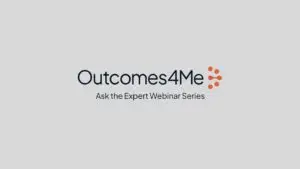Outcomes4Me’s co-founder Maya Said sat down with Dr. Steve Isakoff from Massachusetts General Hospital in Boston to answer questions about what breast cancer patients need to know as America re-opens. Dr. Isakoff is the Associate Director for Clinical Research at the Mass General Cancer Center, the Director of Breast Cancer Clinical Research in Mass General Breast Cancer Program, and an Assistant Professor of Medicine at Harvard Medical School.
We have included the entire video above for anyone who missed it and wants to watch it in full. Here is a recap of the key takeaways from the discussion with Dr. Isakoff:
>> To get things started, what do breast cancer patients need to know in the wake of restrictions ending and america reopening?
Even though businesses are starting to open up and a lot of people will be going back to work, there are still a lot of important guidelines that these individuals and companies will have to follow. We have largely flattened the curve and we want to let people get back to their lives, but we worry that people may think the pandemic is “over” when restriction is lifted. We have to remain diligent and prevent future spread.
In the hospital, we learned quite a bit about how to manage the spread of COVID-19 using the four following approaches:
- Wearing masks, especially in public settings
- Practicing frequent hand-washing
- Practicing physical distancing from others
- Monitoring symptoms that arise
By following these principles, we were able to have low rates of in-hospital transmission of COVID-19, both in terms of healthcare workers and patient-to-patient spread. When things reopen, we will have to count on people to practice these measures in all public settings – this includes schools, businesses, and public work spaces.
>> As a breast cancer patient/survivor, should I go back to work?
As people go back to work, you have a responsibility – if you have COVID-19 symptoms, don’t go to work. Your coworkers have the same responsibilities. Assess where you are working and how they are following the latest guidelines to determine if you are being kept safe at work.
As an individual with breast cancer, there is a certain risk-benefit assessment to be made on going back to work. For example, if you are a teacher: Is the school following rules for physical distancing? Are people being screened for symptoms? Are families being responsible for reporting sick kids to the school?
If you are older, you aren’t at a higher risk of getting COVID-19, but there is a higher risk for hospitalization if you were to contract it. Take this into consideration, as well as any other medical conditions you have, such as asthma, COPD, diabetes – these things would put you at higher risk regardless of your breast cancer diagnosis.
If you are undergoing active treatment with an immunosuppressive drug, it may not be the best idea to go back to work right away. If you are later on in your treatment course or are no longer on active treatment, then going back to work would be okay as long as you practice the safety measures outlined above.
>> What treatments are considered immunosuppressive?
These treatments are immunosuppressive, potentially increasing the complications if you were to get COVID-19:
- Chemotherapy
- Some targeted therapies, like CDK4/6 inhibitors and PIK3CA-targeted drugs
These treatments are generally not considered immunosuppressive:
- Radiation therapy
- Hormonal therapy, such as tamoxifen, Arimidex, Femara, or Aromasin
- HER2-targeted therapies (although these treatments can decrease your white blood count, we don’t generally think of them as immunosuppressive)
>> What can patients do to boost their immune systems?
This is a common question even outside of COVID – it’s been asked for many years, but it is becoming more common now because we’ve learned that helping your immune system is beneficial in fighting off cancer. There’s really no supplement proven to boost your immunity, although a lot of claims exist out there. My general approach is a normal recommended daily dose of vitamins but I don’t recommend taking high doses of anything. There is not really any sufficient evidence that we know these things boost the immune system.
For patients undergoing radiation, make sure to talk to your radiation oncologist about supplements and antioxidants; sometimes they recommend avoiding them, because theoretically antioxidants could help protect cancer cells from radiation. There is not good evidence, so if you are taking supplements, have a discussion with your doctor.
My general recommendation for the immune system is: Sleep and Diet. These things boost your immunity and health in general. For early-stage breast cancer patients, if we are successful in preventing recurrence, you may have to deal with heart disease as you get older. Things that are good for the heart are also good for the immune system and breast cancer: eating well, healthy diet, exercise. I would encourage those more than supplements.
>> Many of the symptoms of COVID-19 are similar to my side effects from treatment. How do I distinguish side effects from my treatment versus symptoms of COVID-19?
This is a question we face every day. The biggest element to think about is if this symptom is NEW. Many women on HR+ drugs like aromatase inhibitors will get hot flashes, muscle/joint aches, or a slight temperature. But if you have been on treatment for a while, you know what your symptoms are.
For example, if you have had joint/muscle pains for a few months on your aromatase inhibitor, you will know that it is not a new symptom, and therefore probably related to your medication.
It’s not trivial. In the non-COVID world we usually will tell you to hold the drug for a month or two and see if your symptoms improve, then restart the drug and see if the symptoms come back. For right now, we will really have to use the time (onset) of the symptoms to help determine if it is COVID-19 related or treatment related.

